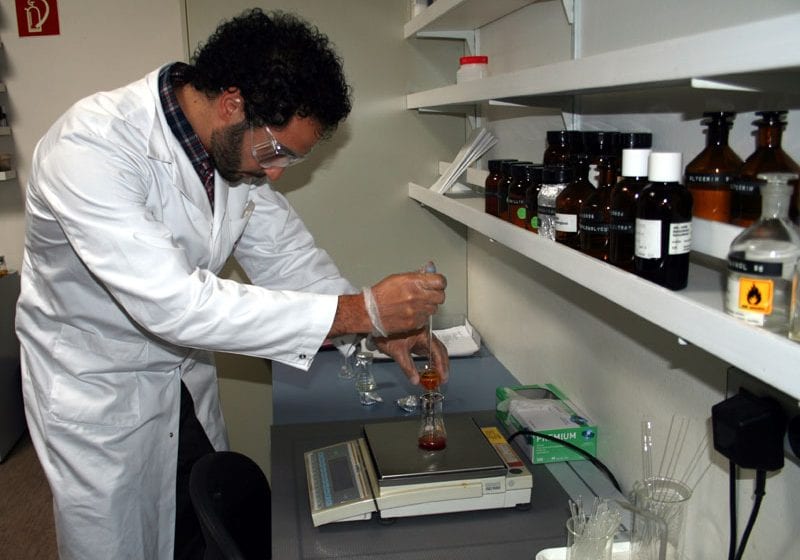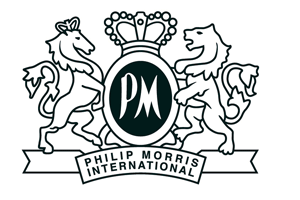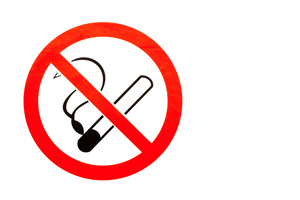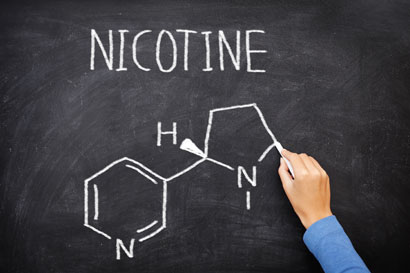The introduction to the city council of Chicago, US, of a measure aimed at banning flavored nicotine cartridges used with electronic cigarettes has been condemned by experts at the free-market think tank, The Heartland Institute.
The measure has been put forward by Alderman Ed Burke.
‘Alderman Ed Burke’s proposed ordinance is nothing more than preening for moralizing anti-fun busybodies,’ said Jesse Hathaway, research fellow, budget and tax policy at the institute.
‘Selling e-cigarettes to individuals under the age of 18 is already illegal in Illinois, so the ordinance’s aims are already addressed by existing laws.
‘Prohibiting the sale of flavored vaping products won’t save any lives, but it may stop people currently addicted to cigarettes from switching to less-harmful alternatives or even kicking the nicotine habit.
‘If Burke’s goal is to promote public health, restricting access to flavoring in e-cigarettes advances the ball in the wrong direction.
‘If Burke’s goal is to look like he’s doing something to gain accolades from the puritan anti-e-cig crowd without actually doing anything useful, then this is perfect.’
Meanwhile, Lindsey Stroud, state government relations manager at the institute, said the role of flavors in electronic cigarettes and vaping devices was crucial – and a motivating factor that had enabled thousands of smokers to quit combustible cigarettes, according to 72 percent of the respondents to a 2015 Consumer Advocates for Smoke-free Alternatives study of 19,000 observations.
‘While attempting to “protect the children,” Alderman Burke ignores the role of tobacco harm reduction (THR) products for adults and is attempting to limit the choices available to help alleviate these individuals from cigarette addiction,’ said Stroud.
‘Rather than placing restrictions on products that have been proven to aid individuals who desire to quit smoking, policy makers should promote the unencumbered use of THR products.’
Category: Harm Reduction

Flavors defended

World No Smoking Days
Philip Morris International is marking World No Tobacco Day, May 31, with a call to recognize it as ‘World No Smoking Day’.
PMI said in a note posted on its website that it was publishing informational advertisements highlighting that people who smoke deserve the opportunity to learn about smoke-free alternatives to cigarettes.
‘It is clear that despite the well-known health risks associated with smoking, many people continue to smoke,’ it said. ‘The World Health Organization (WHO) predicts that there will be more than one billion people who smoke in 2025, about the same number as today.
‘Their best choice would be to quit – but many don’t. It makes sense that these men and women should have access to and information about less-harmful alternatives to cigarettes.
‘Why would anyone deny them this opportunity?’
PMI said it was calling for an additional, bold approach to public health.
“For people who will otherwise continue to smoke, WHO is in the perfect position to drive switching from cigarettes to sensible alternatives,” said André Calantzopoulos, PMI’s CEO.
“A policy that informs people about those alternatives – in essence, a World No Smoking Day – would reduce smoking prevalence to a far greater extent and at a much faster rate than the existing suite of tobacco-control measures alone.
“People who smoke deserve a sensible plan that takes full account of better alternatives to cigarettes.
“For our part, we’re determined to deliver a smoke-free future through innovations that stand up to scientific scrutiny and that meet consumer needs.”
PMI said it had already committed $4.5 billion in supporting a team of 400 world-class scientists, engineers and technicians who had spent years creating and testing a range of smoke-free products that offered a much better choice for the millions of smokers who didn’t quit.
It said that more than five million smokers worldwide had already completely abandoned cigarette smoking and switched to IQOS, PMI’s heated tobacco product, with 10,000 smokers switching every day. And PMI added that it was not the only company pursuing innovation as important to the world’s one billion smokers worldwide – the tobacco industry generally is beginning to move in this direction, to the benefit of men and women who smoke.
“Our short-term ambition is that one out of three of our consumers, 40 million men and women who smoke, will have switched to better alternatives by 2025,” said Calantzopoulos. “Ultimately, we want to be in a position to stop selling cigarettes entirely. However, we need the support of governments and the public health community to make this happen in as short a time as possible. I believe that instead of just designating one day as World No Tobacco Day, we should promote every day as World No Smoking Day.”
PMI said it was proposing that governments and authorities investigate thoroughly how scientifically substantiated smoke-free products could be used as a complementary public health strategy alongside smoking prevention and cessation. With appropriate government control and oversight, these products could have a meaningful and positive impact on public health, it added.
More information about PMI’s views on World No Tobacco Day is at: http://www.pmi.com/world-no-smoking-day-2018.
Heated tobacco warning
A scientist and health advocate says it is important that the European Parliament is presented with the available evidence that heated tobacco products ‘remain both harmful and highly addictive’.
Writing an opinion piece in The Parliament Magazine, Professor Charlotta Pisinger said that no product that damaged the lungs and human health should be promoted to young people across the EU, especially in the ways these new products were presented.
‘As Chair of the European Respiratory Society (ERS) Standing Committee on Tobacco Control, I will present my research findings to the European Parliament in Strasbourg on the 30th May, alongside MEP Gilles Pargneaux and the European Network for Smoking and Tobacco Prevention (ENSP), on the occasion of World No Tobacco Day,’ she said.
‘Independent research suggests that there is a substantially higher health risk than claimed by the tobacco industry.
‘I have discovered that tobacco companies have not informed the public that some harmful substances – such as particulate matter, tar, acetaldehyde (a carcinogen), acrylamide (a potential carcinogen) and an acrolein metabolite (toxic and irritant) – were found in high concentrations in their studies.
‘Some studies also found much higher concentrations of formaldehyde (a potential carcinogen) in heated tobacco products than in conventional cigarettes.’
New Heated Tobacco Products: No Smoke, No fire? hosted by MEP Gilles Pargneaux is due to be held from 13:30 to 15:30 on May 30 at the European Parliament in Strasbourg, room Louise Weiss N3.5. Registration is at: https://forms.ersnet.org/new-heated-tobacco-products.Communication at stake
Philip Morris SA has urged the South African government to create an exemption in its new tobacco bill that would enable the company to provide consumers with information about its heated tobacco device, IQOS, according to a story in The Business Day.
The Control of Tobacco Products and Electronic Delivery Systems Bill, gazetted for public comment on May 9, contains provisions that prohibit all tobacco product advertising.
If enacted in its current form, it would prevent PM from providing consumers with information about IQOS, said Neetesh Ramjee, head of corporate affairs for reduced-risk products.
“The current legislation allows the minister to exempt certain products,” said Ramjee. “It would make sense to insert this clause into the new bill. If we don’t have this mechanism, people will stay on cigarettes.”
Current tobacco legislation permits PM to provide smokers with information about IQOS: for example, in leaflets attached to cigarette packs, but under the new bill, this would be prohibited.
“Eventually we want to get out of the cigarette business,” Ramjee said.
“We are trying to provide alternatives that will meet people’s needs.”
The new bill paves the way for stringent tobacco laws that would for the first time bring electronic cigarettes into the regulatory fold. E-cigarettes are unregulated because they don’t contain tobacco.
Philip Morris said it was seeking legislation that drew a distinction between conventional tobacco products, such as cigarettes, and those that posed less of a risk to consumers.
The World Health Organization, which has welcomed the bill, said the emissions from heated tobacco products and e-cigarettes contained toxins, metals, nicotine and other harmful and potentially harmful substances.
‘Evidence to date suggests that [they] generally contain lower levels of toxic substances found in cigarette smoke, but there is insufficient independent scientific evidence to conclude that they are less harmful than conventional tobacco products, the WHO said in a statement.
Imperial – a better offer
Imperial Brands yesterday published a report giving – for the first time – an overview of the progress it is making in respect of next generation products (NGPs) and outlining its views on a number of key related issues.
The report, From Tobacco to Something Better, is expected to be updated in the future to keep it relevant to what is a quickly-evolving sector.
The 17-page report looks at Imperial’s NGPs timeline, the public health opportunity presented by NGPs, the risk spectrum, products, including snus and heated-tobacco devices, vapor research and development, and regulation.
In an introduction, Imperial’s chief executive, Alison Cooper (pictured), said Nerudia, Imperial’s innovation arm, was “focused on creating a compelling pipeline of innovative products and its entrepreneurial spirit is proving to be a winning addition to our own vibrant culture”.
“In assembling the right components for success, we have deliberately favoured the vapor (EVP) opportunity as it’s by far the largest NGP category,” she said.
“With the technology and scientific insights available to us today, we have never been better placed to be able to transition smokers from cigarettes to something better.
Meanwhile, Matthew Phillips, Imperial’s chief development officer, is quoted in the report as saying that tobacco will be Imperial’s core business for many years to come, generating the funds to invest in NGP.
“But over time that balance will shift and you will see NGP making a material and sustainable contribution to our financial delivery, as we accelerate the transition of smokers to something better,” he said.
Nicotine policy flawed
In a sun-sentinel.com opinion piece, Raymond March has asked why, when other examples of lawmakers attempting to legislate consumer health have failed or made the situation worse, would it be assumed that regulating cigarettes would be any different?
March said that, in 2015, nearly 70 percent of smokers in the US tried unsuccessfully to quit and that their inability to stop had come with considerable health risks. According to the Centers for Disease Control and Prevention, smoking accounted for more than 480,000 preventable deaths per year. Health complications associated with smoking were also financially taxing, leading to nearly $170 billion in direct medical costs annually.
To reduce both eye-opening figures, the Food and Drug Administration had recently announced its intent to reduce nicotine levels in cigarettes.
The FDA hoped that reducing nicotine would cause current smokers to cut back and prevent future generations from starting.
But, said March, it was important to look beyond policy intentions. Unfortunately, the most well-intended policies, especially those aimed to promote health or deter vices, were often deceptively harmful.
Reducing nicotine in cigarettes would likely motivate smokers to consume more cigarettes to satisfy their craving, increasing the amount of toxic materials they ingested. Others might turn to other nicotine products to satisfy their cravings.
Often the alternatives were no better or worse.
Regulations placed on physicians and consumers to prevent opioid abuse often drove patients to seek dangerous illicit alternatives, including heroin. Taxing soda motivated consumers to drink more unhealthy fruit juices and alcoholic beverages. As a result, the consumer’s health was at greater risk.
‘When other examples of lawmakers attempting to legislate consumer health fail or make the situation worse, why would regulating cigarettes be any different?’ he asked.
March is a research fellow at the Independent Institute and assistant professor of economics at San Jose State University.
Call for ban by 2025
The government of New Zealand will have to ban the sale of cigarettes if it wants to reach its goal of making the country tobacco-smoke-free by 2025, MPs have been told, according to a story in The New Zealand Herald.
Public health advocates and academics said also that the government needed to encourage more aggressively less harmful alternatives to smoking, such as vaping.
At a briefing on the Smokefree 2025 target at Parliament, Lance Norman, the chief executive of the Māori public health organization, Hapai Te Hauora, said there was no way the target would be reached on existing settings.
Ministry of Health figures show nearly 16 percent of New Zealanders smoke, including 35 percent of Māori and 25 percent of Pacific Islanders.
The overall rate has fallen from 20.1 per cent in 2006.
The smokefree target set by the government requires smoking rates to fall below five percent by 2025.
“We are nowhere near that,” Norman said. “Saying it’s a train wreck for Māori would be an understatement.”
His organization made three recommendations to MPs if they wanted to reach the goal:- Urgently encourage harm minimization products such as e-cigarettes;
- Ban the sale of cigarettes by 2025;
- Spend more of the revenue from tobacco excise tax on promoting harm-minimization products and supporting vulnerable families.

BAT widens horizons
British American Tobacco has made its first outside investment as it steps up the search for cutting-edge technology that could help it to reduce its reliance on cigarettes and other traditional smoking products, according to story by Bradley Gerrard for the Electronic Telegraph.
The company has backed China Materialia Venture Capital, a Chinese investment fund that is said to seek out early-stage technology firms in a bid to help them develop products that could subsequently be sold to larger companies.
Dr. David O’Reilly, who heads BAT’s research and development division, was quoted as saying that the company had for the first time invested in what he described as a “corporate scouting venture fund” whose aim was to help its investors “secure the latest technology”.
GFN registration open
With about three weeks to go until the start of the fifth Global Forum on Nicotine, the organisers say that there is still time to register for what is scheduled to be the biggest Forum yet.
The 2018 Forum will include the event’s biggest-ever conference program with more than 55 speakers, the second International Symposium on Nicotine Technology, and a film festival.
It is scheduled to be held at the Marriott Hotel, Warsaw, Poland, on June 14-16.
Science losing to ideology
Calling electronic cigarettes toxic and unsafe is absurd, according to Alex Berezow, senior fellow of biomedical science with the American Council on Smoking and Health.
In a piece published on the Council’s website, Berezow made the point that, not that long ago, if a company had invented a far safer way to deliver nicotine to addicted smokers, politicians would have been celebrating.
But today, partisanship had ruined just about everything.
‘I knew something was amiss when I spotted an advertisement in a Seattle light rail car,’ Berezow said. ‘The ad warned potential vapers not to be “fooled” by e-cigarettes, which it said were toxic, addictive, and unsafe. Yes, they are addictive (because they contain nicotine), but calling them toxic and unsafe is absurd. Compared to regular cigarettes, vaping devices are 95 percent safer, according to the UK’s NHS.
‘In other words, if Seattle smokers follow their own public health department’s advice, they are likelier to die. Why on earth would a public health department give such terrible advice? Because the debate over vaping isn’t about science; it’s about ideology.’









